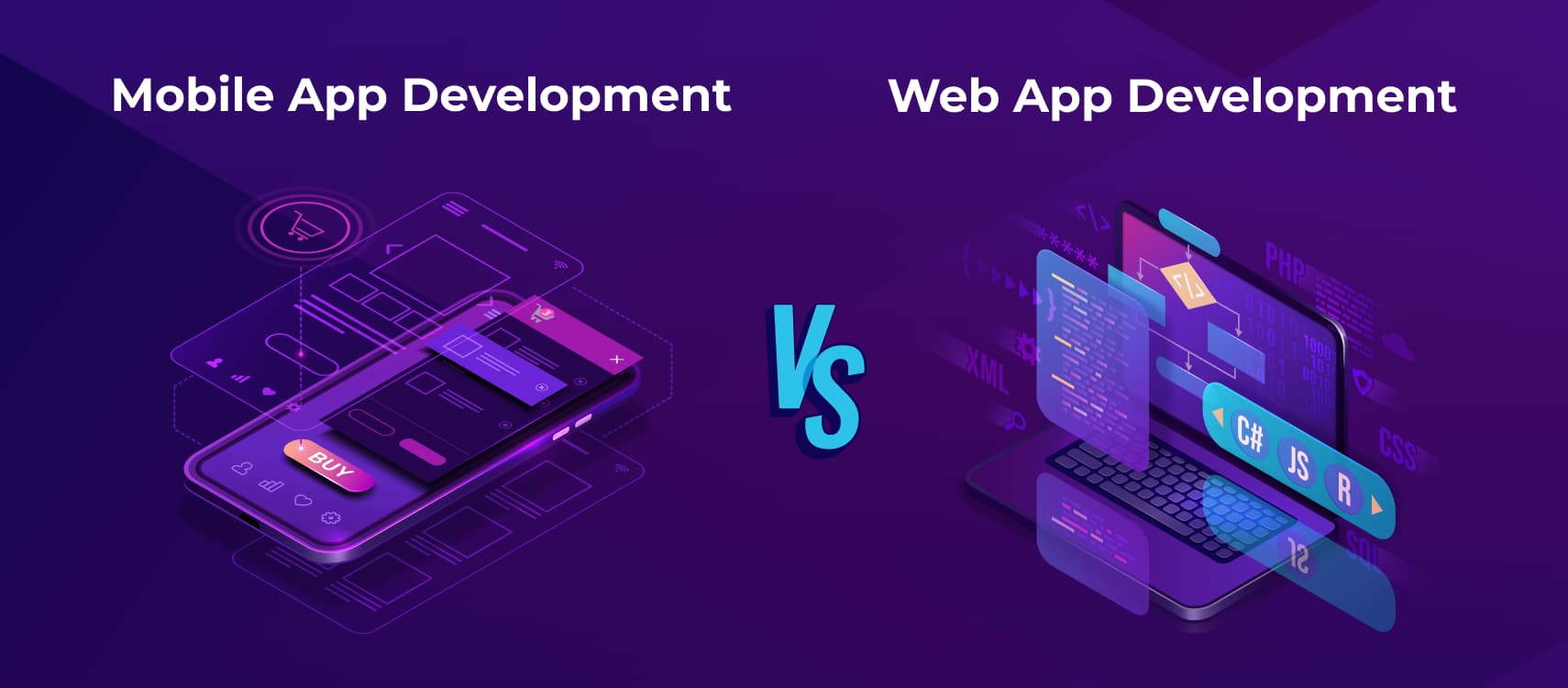Table of Contents
- Mobile Apps
- Mobile App Use Cases
- Web Apps
- Web App Use Cases
- Cost & Development
- UX & Performance
- Ending Notes
In todays digital era, businesses and individuals are increasingly turning to web and mobile app development to enhance their online presence and cater to the ever-evolving user demands. However, the decision to choose between a web app and a mobile app can be crucial, as it directly impacts the user experience, development costs, and target audience reach.
This article will go deeper into the strengths, weaknesses, value propositions, and appropriate use cases for both types of applications, highlighting the significance of mobile app development and mobile app developers in the fast-paced tech landscape.
Mobile Apps: Embracing Native Experience and Device Features
Mobile apps, on the other hand, are specifically designed and developed for particular mobile operating systems, such as Android or iOS. They are installed directly on the user’s device through app stores, offering a more tailored and native user experience. This targeted approach allows developers to leverage the full potential of the device’s hardware and software capabilities, resulting in faster performance and access to features like camera, GPS, accelerometer, and push notifications.
Mobile apps also have an edge over web apps when it comes to offline functionality. Developers can incorporate offline modes or cached data to ensure users can still access certain features even without an internet connection. For instance, a travel app can allow users to download maps and itineraries beforehand, facilitating seamless navigation during their trips, even in remote areas with poor connectivity.
Value Propositions and Use Cases for Mobile Apps
-
Gaming and Entertainment:
Mobile games have thrived due to their immersive user experience and utilization of device-specific hardware, such as touchscreens and motion sensors.
-
E-Commerce with Personalization:
Mobile apps offer a personalized shopping experience with features like location-based recommendations and push notifications, boosting customer engagement and loyalty.
-
Mobile Banking and FinTech:
Security and convenience are crucial in finance applications, and mobile apps provide a secure environment for users to manage their accounts and perform transactions on the go.
Web Apps: The Power of Cross-Platform Accessibility
Web apps are applications that users access through web browsers, and they work across multiple devices regardless of the operating system. This inherent cross-platform compatibility is one of the significant strengths of web apps. By being accessible through browsers, web apps cater to a wider audience and don’t require users to download and install anything, making it highly convenient. Businesses often prefer web app development as they are easier to maintain and update since changes are reflected instantly for all users without the need for manual app updates.
Additionally, web apps can leverage the capabilities of modern web technologies like HTML5, CSS3, and JavaScript frameworks, enabling developers to create feature-rich and interactive experiences. Furthermore, cross-platform accessibility allows businesses to reach users on various devices, from desktops to tablets and smartphones.
Despite these advantages, web apps do have certain limitations. The most prominent one is their dependency on an active internet connection. Offline functionality can be a challenge, especially in regions with limited internet access or during instances of network outages. Moreover, web apps might not be able to access certain hardware features of mobile devices, such as the camera, GPS, or push notifications, limiting their potential in delivering a truly immersive user experience.
Value Propositions and Use Cases for Web Apps
-
Content and Information Portals:
Websites providing news, blogs, or information databases are best suited as web apps. For example, a popular news website can offer a seamless reading experience across different devices, promoting cross-platform accessibility.
-
E-Commerce Platforms:
Many online shopping websites have adopted web apps to ensure their customers can browse and shop from any device effortlessly.
-
Collaboration and Productivity Tools:
Web apps like Google Docs and Trello allow users to collaborate in real-time, regardless of the device they are using, enhancing productivity.
Cost and Development Considerations
Cost is a significant factor when deciding between web and mobile app development. Web app development is generally more cost-effective since it involves creating a single application that runs on multiple platforms. Conversely, mobile app development requires building separate versions for Android and iOS, which can increase the development time and cost.
However, the decision must consider the target audience and the specific requirements of the app. If the app’s functionality relies heavily on utilizing device-specific features, a mobile app might be the more appropriate choice, despite the higher development cost.
Furthermore, the availability of skilled mobile app developers should be taken into account. While web development skills are widely accessible, the demand for experienced mobile app developers is often high, leading to potential project delays and higher development costs.
User Experience and Performance
User experience (UX) is crucial for any app’s success, and both web and mobile apps have their strengths in this area. Web apps benefit from consistent user interfaces across various devices, ensuring a familiar experience for users. Additionally, web apps can quickly adapt to changes and improvements due to their centralized nature, allowing for immediate updates.
On the other hand, mobile apps tend to offer smoother interactions and faster performance, as they are optimized for specific platforms and utilize native development languages. This optimized performance contributes to higher user satisfaction and increased app usage, benefiting businesses in terms of customer retention and loyalty.
Ending Notes
Web app development offers cross-platform accessibility, easier maintenance, and wider reach, making it suitable for information portals and e-commerce platforms. Meanwhile, mobile app development focuses on delivering native experiences, leveraging device features, and providing seamless offline functionality. This approach works best for gaming, e-commerce with personalization, and fintech applications.
Ultimately, businesses should carefully assess the unique needs of their users and their long-term goals to make an informed decision. Both web and mobile apps have their value propositions and strengths, and the selection should align with the app’s purpose, functionality, and the availability of skilled mobile app developers. With a meticulous approach and a clear understanding of the strengths and weaknesses of both options, businesses can develop compelling applications that resonate with their target audience and achieve their desired outcomes.










